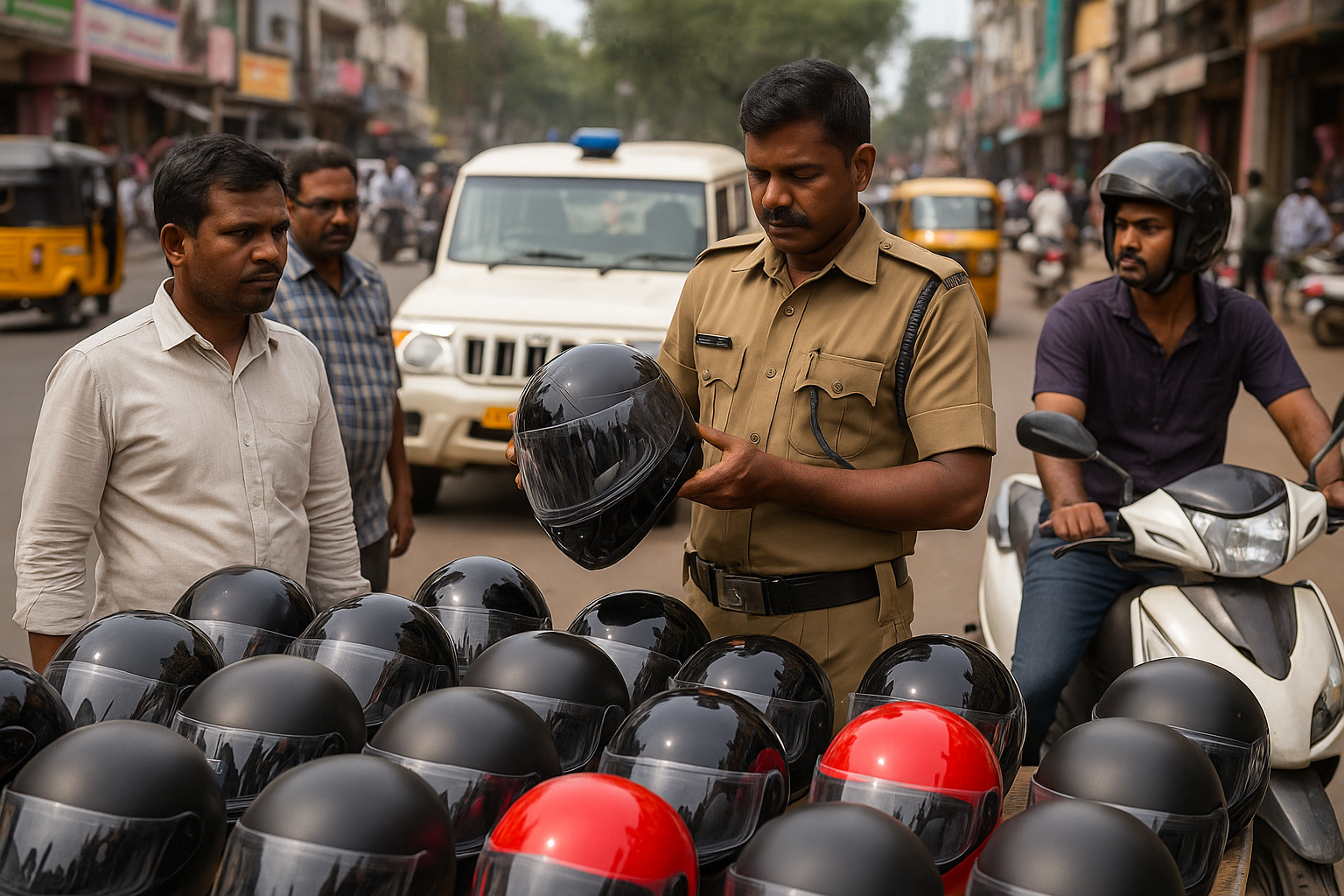Government Pushes BIS-Certified Helmets to Curb Road Accident Fatalities
BIS field offices are working closely with district administrations and local police departments to identify violators and spread awareness.

- Country:
- India
In a decisive move to bolster road safety and safeguard two-wheeler riders across the country, the Department of Consumer Affairs, Government of India, along with the Bureau of Indian Standards (BIS), has launched a nationwide crackdown on the manufacture and sale of substandard helmets. The government is urging consumers to use only BIS-certified helmets and calling for strict enforcement of quality standards to eliminate unsafe protective gear from Indian roads.
With over 210 million two-wheelers traversing India’s roads, rider safety has emerged as a national priority. Although wearing helmets has been mandatory under the Motor Vehicles Act, 1988, the government emphasizes that helmet effectiveness depends on quality—a concern increasingly threatened by the prevalence of counterfeit and uncertified products.
Mandatory Certification: ISI Mark as a Lifesaving Standard
To ensure quality, the government issued a Quality Control Order (QCO) in 2021, requiring all helmets for two-wheelers to be ISI-marked and BIS-certified under the IS 4151:2015 standard. As of June 2025, 176 helmet manufacturers hold valid BIS licenses, producing certified gear designed to meet rigorous safety benchmarks.
Despite these regulations, inspections reveal that a large number of helmets—especially those sold on roadsides and in informal markets—do not meet BIS standards. These substandard products not only compromise safety but also contribute significantly to fatalities and severe head injuries in road accidents.
BIS Enforcement: Seizures and Surveillance in Action
To counter this, BIS has ramped up enforcement, conducting regular factory and market surveillance. In the last financial year alone:
-
Over 500 helmet samples were tested for compliance.
-
More than 30 search-and-seizure operations were carried out.
-
In a notable raid in Delhi, over 2,500 non-compliant helmets were seized from nine manufacturers operating with expired or canceled licenses.
-
At 17 retail and roadside locations, around 500 substandard helmets were confiscated, with legal proceedings initiated.
These efforts are part of a broader strategy to ensure that only quality-tested helmets are available to consumers.
Nationwide Campaign: Enforcement and Awareness Go Hand in Hand
Recognizing the scale of the problem, the Department of Consumer Affairs has reached out to District Collectors and Magistrates, urging them to lead special enforcement campaigns in their regions. The campaigns are being integrated with ongoing road safety initiatives, with encouraging results already reported from the Delhi NCR region and expanding across other states.
BIS field offices are working closely with district administrations and local police departments to identify violators and spread awareness. In Chennai, BIS teams partnered with traffic police and civic bodies to organize a roadshow distributing ISI-marked helmets and educating riders about the importance of certified gear.
Tech Tools and Community Outreach
To empower consumers, the BIS Care App and the BIS portal now allow users to:
-
Verify BIS certification of helmet manufacturers.
-
Lodge complaints against non-compliant or counterfeit products.
Additionally, BIS has launched the “Quality Connect” initiative, supported by Manak Mitra volunteers, who engage directly with the public to spread awareness about mandatory product certifications, including helmets, household appliances, and construction materials.
Media Campaigns and Civil Society Partnerships
The campaign’s visibility has been significantly boosted through:
-
Mass media advertisements
-
Social media outreach
-
Collaborations with civil society groups working in road safety and consumer rights
These awareness drives aim to shift public perception, making certification a key factor in purchasing decisions.
The High Cost of Negligence
Substandard helmets remain a silent killer on India’s roads. Research shows that wearing a BIS-certified helmet can reduce the risk of head injury by nearly 70% and death by almost 40%. The lack of awareness and enforcement, however, allows many unsafe products to circulate freely.
“Removing substandard helmets is a life-saving intervention,” said an official from the Department of Consumer Affairs. “Every uncertified helmet on the road is a potential hazard.”
A Commitment to Safer Roads
By tightening surveillance, encouraging consumer vigilance, and improving compliance, the government seeks to drastically reduce road fatalities. The BIS initiative is part of a broader push to enforce quality standards across multiple consumer goods sectors, ensuring that public safety and consumer protection go hand in hand.
As India continues to expand its road network and urban mobility, certified helmets are no longer just a legal necessity—they are a public health imperative.








